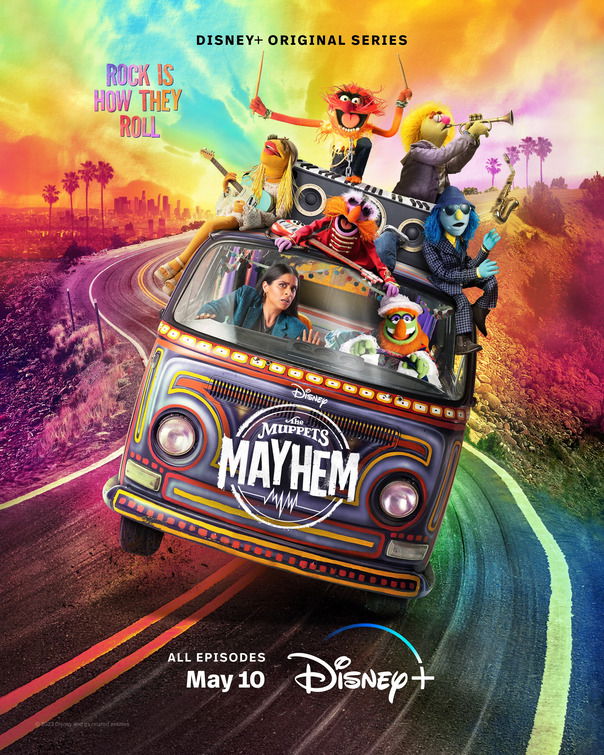“A Rags to Riches Story”

| None | Light | Moderate | Heavy | |
|---|---|---|---|---|
| Language | ||||
| Violence | ||||
| Sex | ||||
| Nudity |
What You Need To Know:
In true Disney fashion, MONKEY KINGDOM isn’t merely an observation of nature. It’s a rags-to-riches story with plenty of drama and danger to keep things interesting. The monkeys become humanlike, and the cinematography is stunning. There’s no offensive content, but there are two scary instances of a monkey being killed. MONKEY KINGDOM is cute and entertaining and teaches some positive values, but watch out for its scary moments and suggestions of class warfare.
Content:
(BB, C, Ro, ACap, So, FR, VV) Strong moral worldview with some redemptive elements about monkeys in Sri Lanka, with a strong emphasis on a parental love for children, parents sacrifice their own comfort and safety for the benefit of their children, a strong emphasis on families within the monkey troops, friendship and helpfulness is shown as important to survival, mitigated by some Romantic, anti-capitalist undertones implied as the “rich” among the monkey troop (led by the alpha males in the troop) refuse to share their wealth with the poorer among them, and by some socialist connotations where social class warfare is repeatedly brought to the forefront as the lower and upper classes of the monkey troop clash, with the upper class monkeys led by the alpha males are shown as oppressors of the lower class, plus some images of Non-Christian religious symbols; no foul language; some strong violence as two monkeys are killed (one by a predator and one in a fight), but nothing graphic is shown, a monkey corpse is partially shown from a distance, and a rival monkey troop attacks and chases another troop away, primarily through intimidation; no sex scenes but female monkey gives birth to newborn off screen; and, nothing else objectionable.
More Detail:
The movie opens showing the hilarious daily antics of the monkeys with the theme song from THE MONKEES appropriately providing the soundtrack. Everyone seems to be enjoying themselves until the narrator, Tina Fey, reveals that things aren’t as fun as they seem.
There’s a strict social order to this monkey troop comprised of upper, middle and lower classes, led by the alpha males. Life at the bottom isn’t so rosy, which is something Maya has known for her entire life. She was born into the lower class, and there she will stay until she dies. Those at the top refuse to share their food and shelter, and Maya must survive on what is left over, or dangerously venture into the jungle to forage for herself.
Things change when Kumar, a young male, wanders into the troop. He has eyes for Maya and manages to woo her, but the other males end up chasing him away. A year passes and Maya has given birth to a baby named Kip. Survival is paramount now that she must fend for her son as well. Her low status means she doesn’t have the parental support network that monkeys at the top have, so she must raise her son alone. The danger rises as a rival macaque troop invades and takes over the kingdom. An unlikely hero comes from the outside, and Maya has an opportunity to emerge from the lower class and help save everyone. She learns to turn the bad into good and not allow her class status hold her back from creating a better life for her family.
In true Disney fashion, this documentary isn’t merely presented as an observation of nature, but is turned into a rags-to-riches story with plenty of drama and danger to keep things interesting through the whole movie. The monkeys, like so many other animal and inanimate objects in Disney movies, become humanlike in their behavior. Using the device of a narrator, the monkeys go from cracking jokes to complex thoughts on how to survive a particular situation. Also a hallmark of Disney Nature, the cinematography is stunning in many scenes, particularly when the monkeys dive underwater to harvest plant pods.
Children are the primary audience for MONKEY KINGDOM, so you won’t find things like offensive language or inappropriate content in this documentary. Overall, the documentary is very child-friendly, even to the point of being somewhat cloying at times. There are two scary instances of a monkey being killed. One is by a predator and another by a rival monkey troop attacking for control of territory. Disney elects not to show the monkeys being killed or any graphic images of the dead monkeys. All viewers see are partial shots of the corpses from a distance.
Ultimately, MONKEY KINGDOM is an uplifting rags-to-riches story, with a strong emphasis on parental love for children, family values, and monkey parents sacrifice their own comfort and safety for their children’s benefit. That said, adults may recognize some anti-capitalist, socialist political undertones of class warfare as the narrator reminds viewers throughout the movie of the lower and uppers class status in which the monkeys are trapped. Those in the lower classes are there because the upper class (the “spoiled rich”) will not share what they have. Disney never draws any direct comparisons to the human condition, but it’s difficult for moviegoers not to do so.
Overall, MONKEY KINGDOM is a fun family movie that celebrates and teaches some positive values, but watch out for its scary moments and political undertones.


 - Content:
- Content: 




